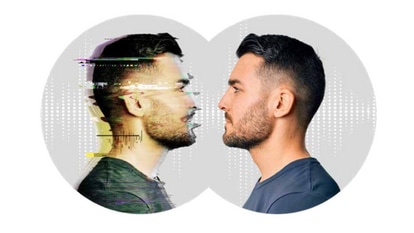Mister Cool
The scientist has been able to bring unanimity in the climate change panel that he has been heading for five years, writes Reshma Patil.
If you wake up as early as 3 am and drive to the Capital's India Habitat Centre, you may spot a co-winner of the latest Nobel Peace Prize, with trademark beard and sleeves rolled back, hunched over his computer screen, sifting through scientific data streaming in 24x7 from 500 to 600 authors, and over 100 nations.
Nainital-born Rajendra Kumar Pachauri (67) or Pachy, is not strictly a scientist but an economist with two PhDs in economics and industrial engineering from the North Carolina State University, US.
However, it was none other than Gore who criticised Pachauri's candidature for the IPCC chairman's post in a New York Times opinion piece in April 2002, as "the 'let's drag our feet' candidate known for his virulent anti-American statements.''
Pachauri had dashed off a reply to the Editor: "Gore's derogatory statements about me reflect deep disappointment at my election as chairman of the IPCC...In a 1991 speech, Mr Gore referred to my 'commitment, vision and dedication'...would the real Al Gore stand up? Does what he says today hold no value tomorrow?" Pachauri, also a member of the Prime Minister's Council on Climate Change, says he's just a 'symbol' of the Intergovernmental Panel on Climate Change — the real winner.
But even before dawn, when he is not globe-trotting to issue blunt wake-up calls to fight climate change, Pachauri works on IPCC reports from behind a staggering pile of books and files at the The Energy and Resources Institute (TERI) he heads.
In the hotseat
Pachauri took charge as elected chairman of the IPCC in 2002. The panel, set up in 1988 by the World Meteorological Organisation and the UN Environment Programme, is currently considered the world's last scientific word on climate change assessment. Sorry, Sir Nicholas Stern. Eleven of the last 12 years were among the 12 warmest years since 1850.
The IPCC 2007 reports, coming after a six-year gap, give grimmer warnings of rising temperatures, extreme rainfall events, droughts, coastal floods and disease spread. So a plea for sleep is Pachauri's vocal desire after most of the meetings he chairs — the last was in Brussels in April when the Panel released its grimmest warnings on man-made climate change.
The meetings to accept the panel's reports famously and bitterly bicker through nights, and the sleepless chairman has no choice but to time his visits to the loo lest he misses a certain nation's view about even a decimal point rise in temperature. With the chairman in the hotseat, members from over 100 nations argue about the findings until the worn-out authors finally reach a consensus on whether an aspect of climate change is 'likely' or 'virtually certain'.
Before the meetings, the draft findings are sent to governments and reviewers worldwide, and the reviewers send back thousands of comments to the authors. The comments are tagged and studied.
Warming warning
In February, the IPCC's first volume on Climate Change 2007 was produced by 600 authors with reviews from representatives of 113 nations.
The February report said by 2100, temperatures will likely increase by 1.8 to 4 degrees Celsius, compared to the 0.7 degree Celsius rise in the past century. Sections of global media speculated that the draft was 'watered down' due to political pressure from big guns China, the US and a few dropped India's name too.
Pachauri told HT soon after that meeting: "Political pressure cannot make us change our work. The debate is transparent…I've been able to bring about a fair amount of unity. There are no deep contentions anymore." The IPCC's next installment in April warned that rising temperatures will impact India hard as Himalayan glaciers melt faster, drinking water shortages worsen in the coming decades, and a third of world species faces extinction.
"A substantially faster melting of glaciers, sea-level rise, increasing floods, droughts and heat waves are a matter of concern," Pachauri had summed up the 1,400 page report to HT from Brussels. "It is high time the Indian government and all of us start looking at the implications of climate change impact especially for the poor dependent on rain-fed agriculture."
Poorer nations that contribute less to heat-trapping greenhouse gas emissions will pay the highest price for global warming, so it helps to have an economist to campaign for climate change awareness and mitigation.
The next IPCC report will be out in November. The synthesis report will be crunched from 3,000 pages to 30 pages.
Let the man with no weekends sleep before the next big fight.
Catch all the Latest Tech News, Mobile News, Laptop News, Gaming news, Wearables News , How To News, also keep up with us on Whatsapp channel,Twitter, Facebook, Google News, and Instagram. For our latest videos, subscribe to our YouTube channel.


























